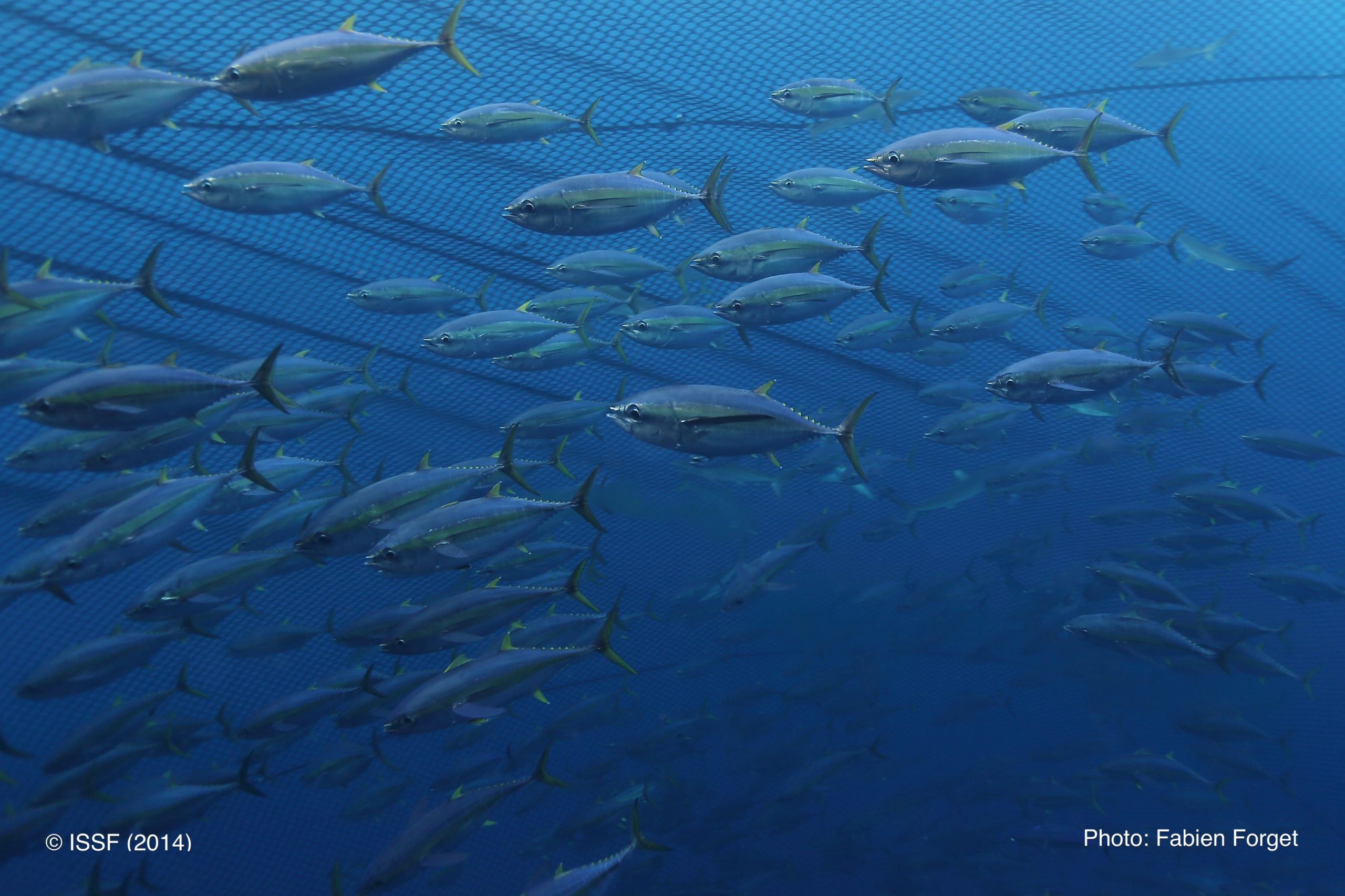May 2, 2023

Did you know that there’s an official UN recognized day for tuna?
On May 2nd, World Tuna Day celebrates the day in 2016 that governments around the world publicly agreed on the need to manage tuna stocks sustainably, emphasizing the importance of conservation management. It’s also a moment for governments and stakeholders – industry and environmental, alike – to help bring awareness to the importance of tuna fisheries for socioeconomic benefits like food security and economic opportunity.
And 2023 is a special year for World Tuna Day because recent global efforts to improve the sustainability of tuna fisheries are starting to see results. A scientific study published last November found that, contrary to most other types of wildlife, oceanic tunas have actually seen notable recoveries in abundance in the last decade. Those that are seeing positive change are rare but important examples of sustainability against global trends of biodiversity loss.
Much of this improvement has been driven by regional fishery management organizations (RFMOs) adopting longer-term thinking, embracing best-available science, and creating transparent and inclusive decision-making processes. Perhaps no policy better encapsulates these three features than harvest strategies (or management procedures), the first of which was adopted in 2011 for Southern bluefin tuna by the Commission for the Conservation of Southern Bluefin Tuna (CCSBT). This success story, where the harvest strategy quadrupled the stock’s abundance in less than ten years while also allowing catches to simultaneously increase, helped spark a wave of interest in harvest strategy development for tuna fisheries that has now begun to take hold.
Since then, harvest strategies have been adopted for an additional 6 tuna stocks in three other tuna RFMOs, with another nine with the potential to be adopted by the end of 2024. As RFMOs capitalize on the past decade of development work in the next two years, reaching the tipping point toward adoption, World Tuna Day is a poignant moment to reflect on what has been achieved so far and the work still to come. The first tRFMO commission meeting for 2023 where major decisions can be made will be held in Mauritius next week for the Indian Ocean Tuna Commission (IOTC).
IOTC is poised to make great progress on harvest strategies at the commission meeting next week and over the next year. This RFMO was one of the earliest champions of harvest strategies, having notably adopted a harvest control rule (HCR) for skipjack tuna in 2016, the first partial harvest strategy for tropical tunas of any RFMO. They furthered that legacy by adopting one for bigeye in 2022.
While IOTC’s efforts have been commendable, systemic issues have impeded these harvest strategies from achieving their objectives to date. For skipjack, the HCR has not been effectively implemented yet. IOTC stands to greatly strengthen the harvest strategy for skipjack, and other current and future harvest strategies, by providing an allocation key to guide how catch limits are divided among member countries. The lack of one has caused the fishery to exceed its total allowable catch by 16 – 30% each year from 2018 – 2021. With IOTC slated to implement its new harvest strategy for bigeye tuna next year, similar overharvests could occur without urgent action this year to similarly allocate the catch.
Furthermore, the skipjack HCR is just that – only an HCR – which needs to be expanded to a full harvest strategy. IOTC deserves credit for having already initiated the work to do this, developing a new HCR with complementary monitoring protocol and assessment method. Agreeing on these additional elements is especially important as the inputs and assumptions are used in the HCR to calculate a catch limit that aligns with the harvest strategy’s management objectives. For consistent application, all elements need to be pre-agreed as part of a full MP. As part of this effort, IOTC is also developing a more robust management strategy evaluation (MSE) for skipjack, a crucial step as MSEs are the most important tool for scientists to analyze and decision makers to select a harvest strategy based on best available science.
As these improvements to skipjack are made for adoption of a full MP in 2024, IOTC is also poised to adopt harvest strategies for three more fisheries. Swordfish and albacore are particularly well positioned to be adopted by 2024, with significant progress having been made on their respective MSEs and an opportunity to advance the science even further following feedback to be requested at the IOTC’s science-management dialogue meeting, called the Technical Committee on Management Procedures, later this week. Yellowfin tuna also has the potential to adopt a harvest strategy next year. It’s been several years since Australia first tabled its MP framework for the overfished stock, but the MSE has been delayed pending improvements to the stock assessment, which also impact the MSE. It is important that these matters receive deserved attention at the Commission meeting, and achieving them will require an ambitious workplan with funding to support it.
On World Tuna Day, IOTC is a prime example to build momentum and bring the investments in science and dialogue in the last several years into action. Next week will be a critical step in the process to build from where IOTC began with skipjack in 2016.